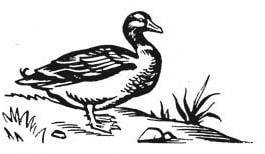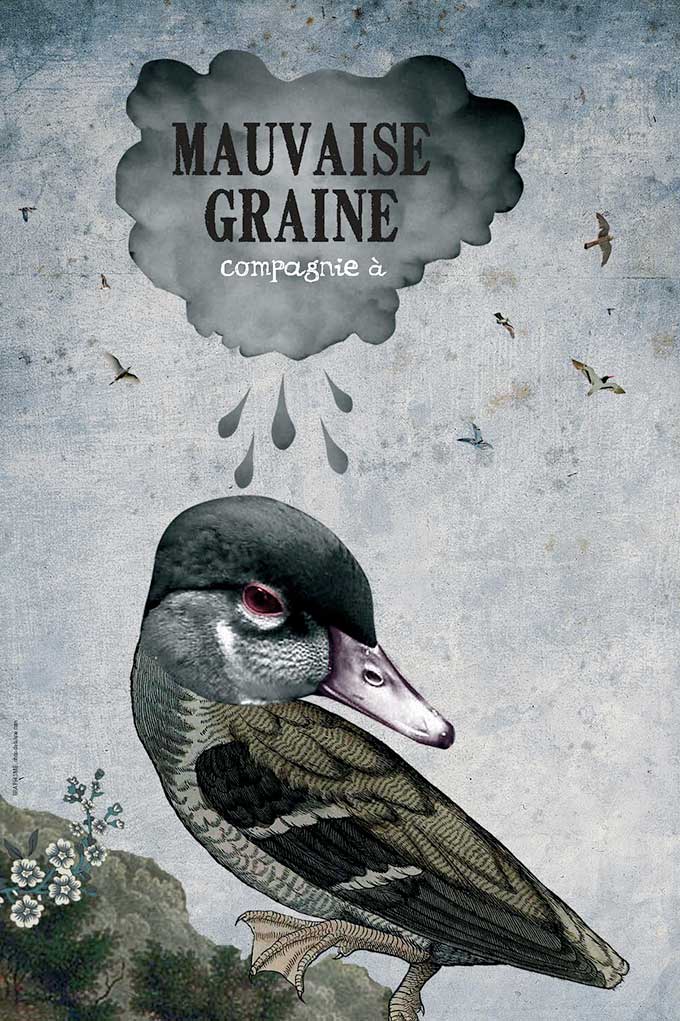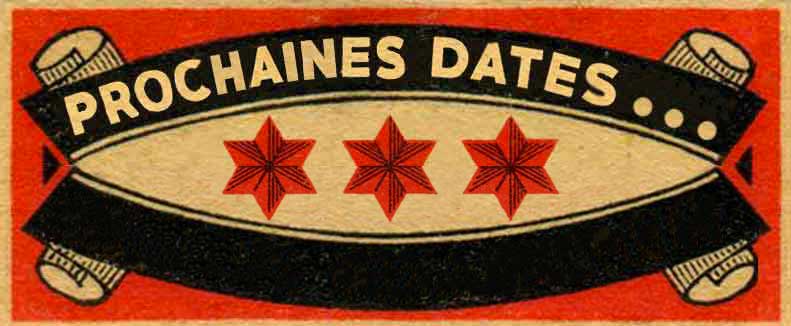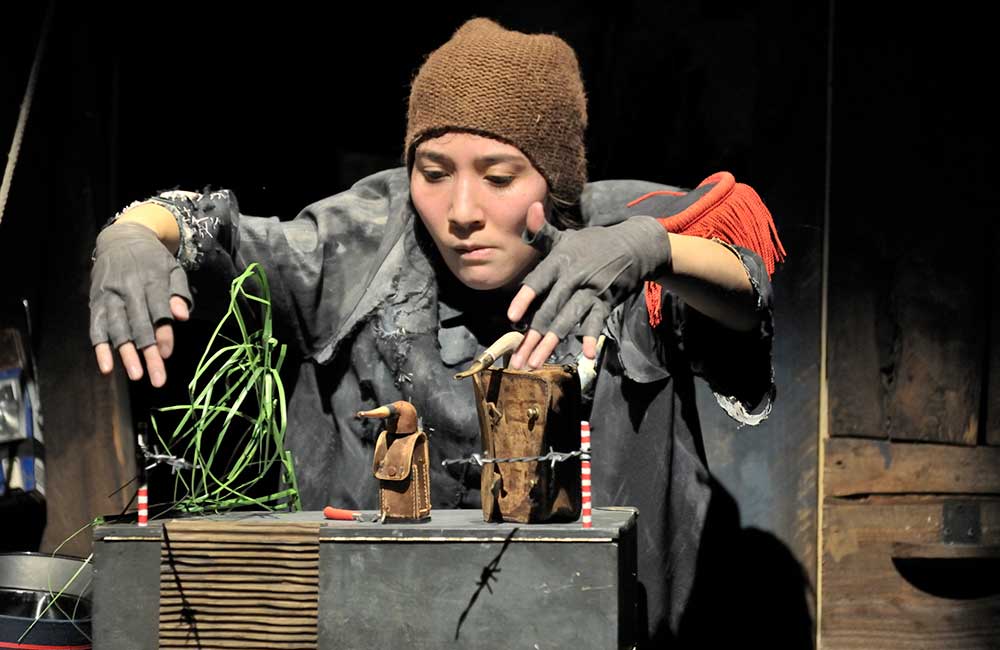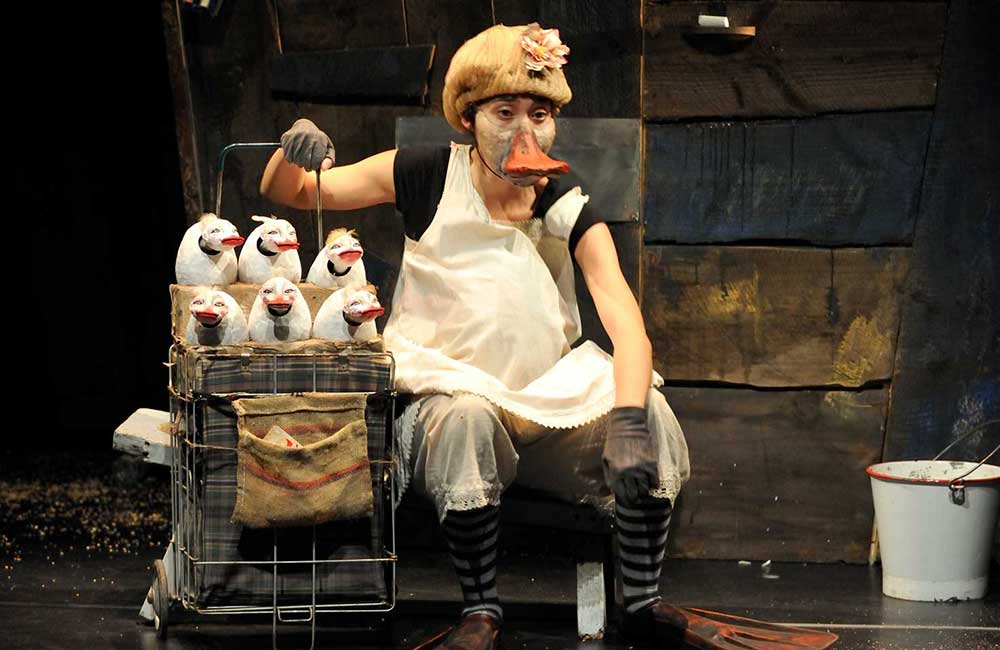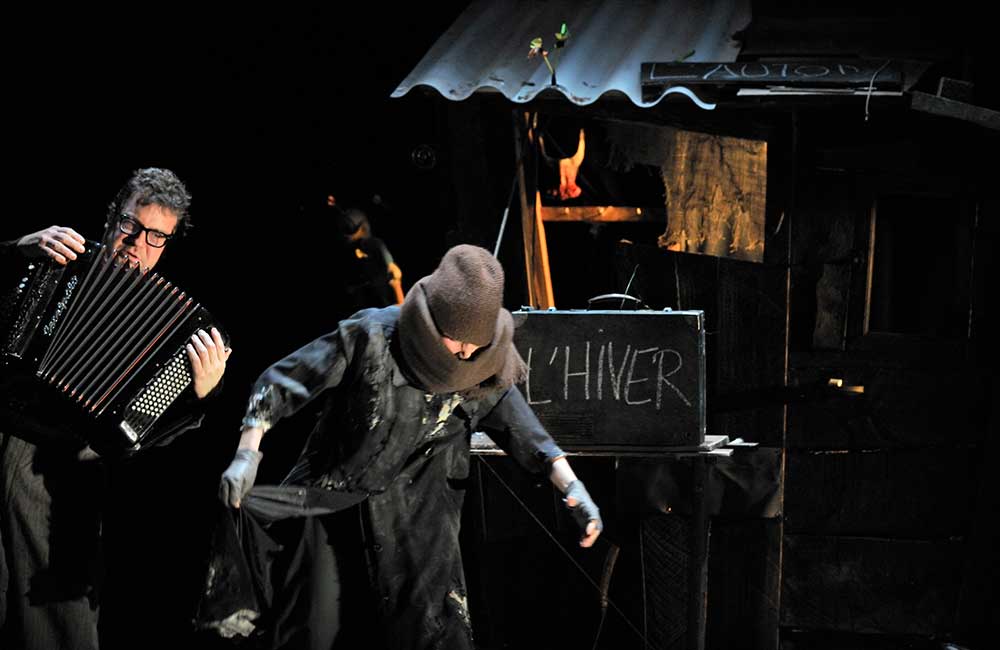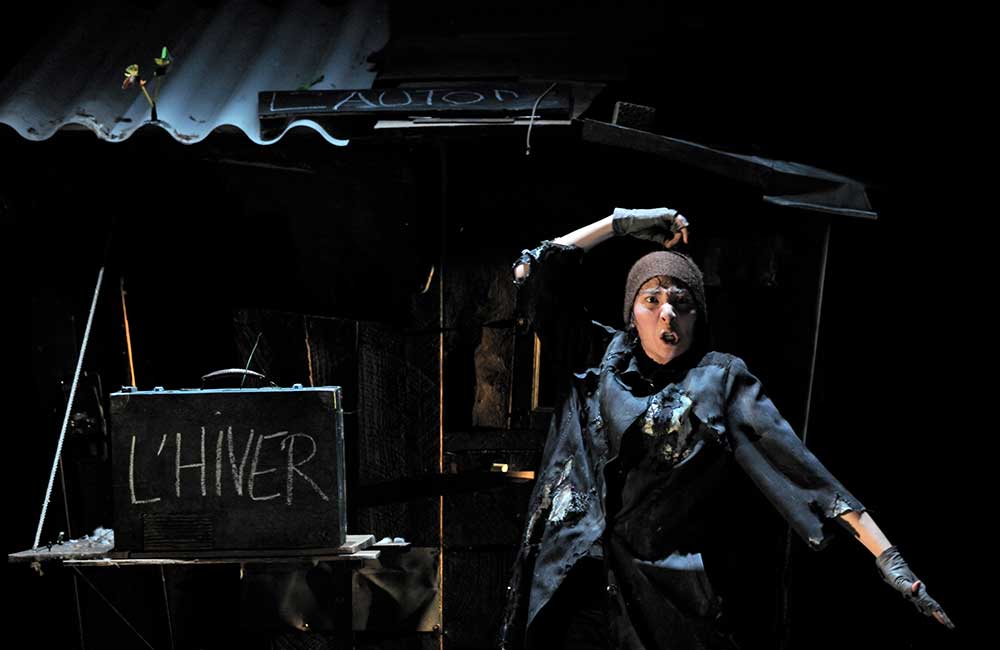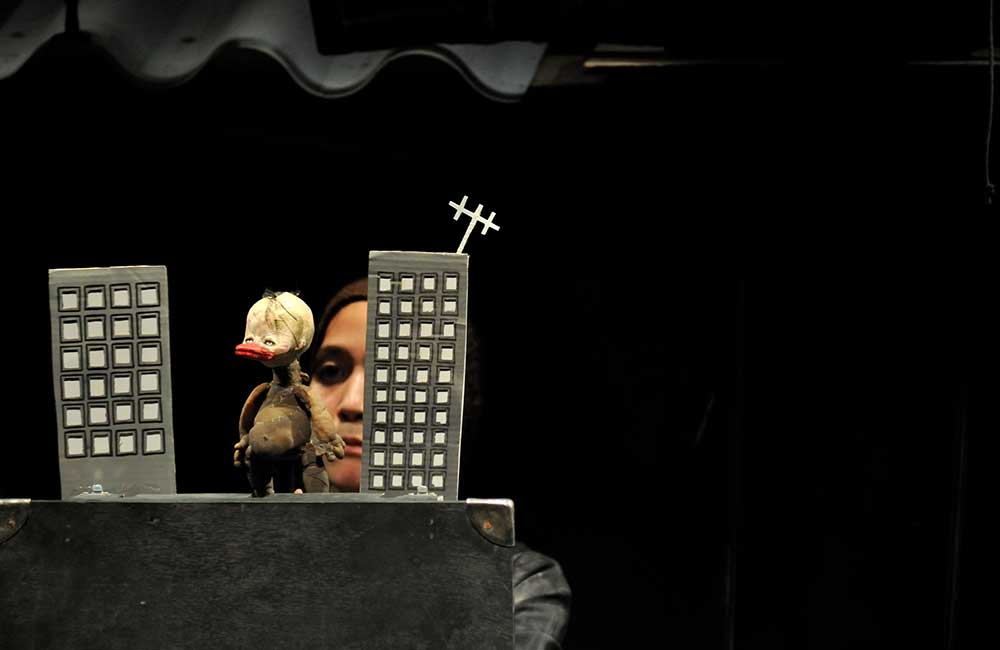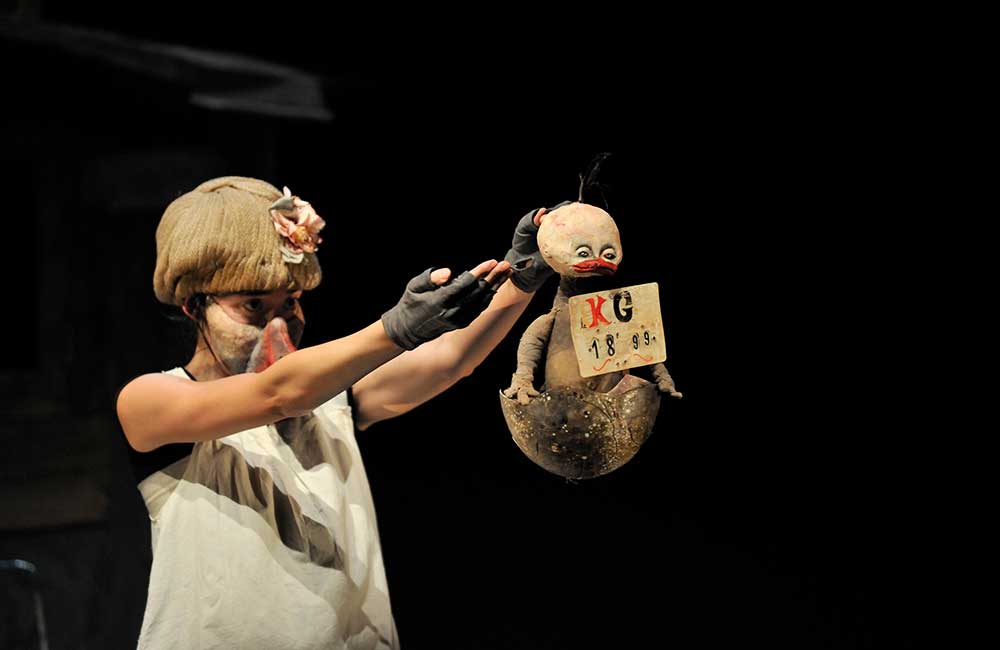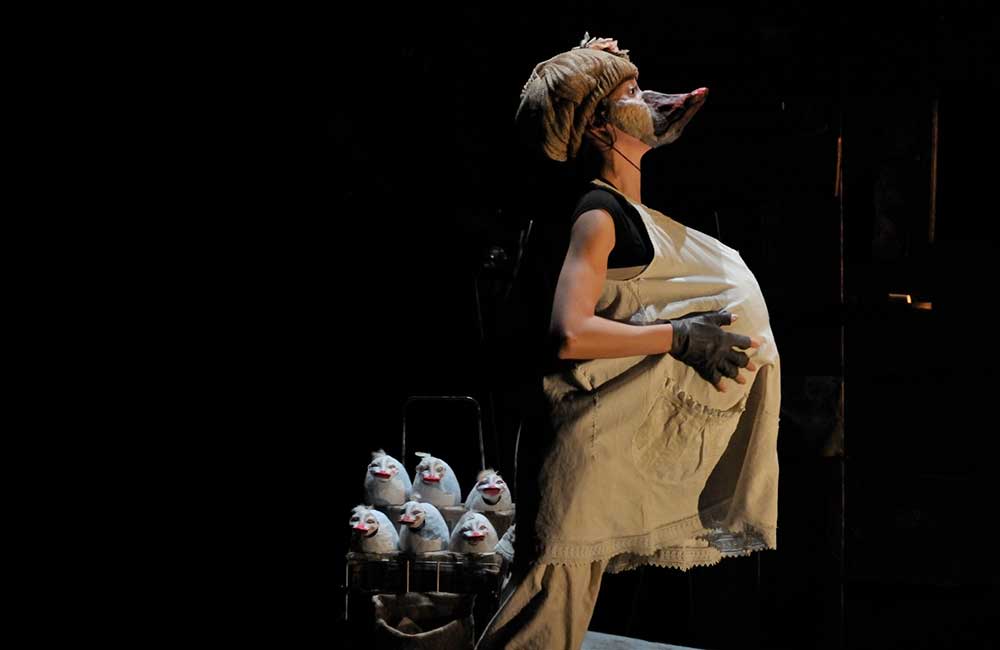MAUVAISE GRAINE (Bad Seed)
Farcical Object Theatre show
When one is a sort of undetermined bird, hairy, smelly and awkward, how many chances are there to make it through?
Bad Seed is a loose adaptation of Andersen's "Ugly Duckling".
A contemporary social and cruel tale, in four seasons, about exclusion, being different, exile and hope.
Notes of intent: "The tale of The Ugly Duckling by H. C. Andersen particularly moved me because it tackles the themes that I find resolutely social, contemporary and universal: difference, exclusion, the way a group or society looks at any " dissimilar " being. This tale speaks of loneliness, exile, search for a homeland, identity, it also speaks of the ambiguity of family relationships, the cruelty of social pressure and the scrutiny of others ...
For me, the character of the ugly duckling is as much a figure of the "different" child who is not accepted, but also that of the exile, that "eternal immigrant" rejected from every country, in search of their own homeland ...
This tale, in its representation of the passing stranger, speaks of wandering in search of another land or a journey towards lost and unknown roots.
This text questions us about the notions of family and origin: What is our family, what are our origins? Where do we come from? Can we have several families? It addresses the question of other people’s views (society, neighbours, family) on people who are "different", who are not "normal". What can this theme mean today? Who are our "Ugly Ducklings" today? Who decides, who judges that this person is "different", "ugly" or "beautiful"? It is also the story of a family tragedy, where a mother, driven by social pressure and fear of others, comes to abandon her own child. This dramatic situation addresses the complexity of family relationships and the power of life or death that one can have over certain beings. These links of manipulation and domination present in this tale make me think that it is relevant to question it today theatrically, through objects and puppets.
Finally, the character of the ugly duckling finds, in my opinion, a real echo in the figure of the clown. Like him, he is in an inadequate situation, in failure, survival, emptiness. What makes us laugh is to see how this being in danger struggles to stay alive, to stand while he is on the brink of falling over. Unlike other tales, where the characters become heroes by performing various tests, the character of the little duck does nothing "extraordinary": he follows his destiny and fights to survive. The strength of his struggle and his hope is magnificent. There is no question of aspiring to a social ascension or even of "transformation": at the end of the tale, the ugly duckling finds a place where he is accepted as such, but he has remained true to himself. It is the story of an accomplishment, not a transformation. "
Dorothée Saysombat
ARTISTIC TEAM
- Created, directed and performed by Dorothée Saysombat
- Staged by Nicolas Alline and Dorothée Saysombat
- Music : Scott Taylor
- Outlook : Jacques Templeraud
- Choreographic outlook : Yumi Fujitani
-
Lights creation: Rodrigue Bernard
-
Puppets and accessories: Géraldine Bonneton et Dorothée Saysombat,
-
Construction of the decor: Yves Perey
-
Costumes: Mathilde Gallay-Keller
© Photographies Jef Rabillon
COPRODUCTION
Résidences, soutiens, coproductions et partenariats : DRAC Pays de la Loire , Conseil Régional des Pays de la Loire, Conseil Général du Maine et Loire, Ville d’Angers, Garage/Cie l’Oiseau Mouche de Roubaix (59),Institut International de la Marionnette de Charleville-Mézières (08), Association Au Bout du Plongeoir (35), Théâtre à la Coque / Cie Bouffou Théâtre, Hennebont (56), Carré / Scène Nationale de Château Gontier (53), Théâtre de la Marionnette à Paris, Théâtre de l’Hôtel de Ville de St Barthélémy d’Anjou (49)
PRESS
Thursday 29th January 2009, Ouest-France:
Using two objects, three movements and a few whispers, Dorothée Saysombat takes us through the worldwide journey of this "bad seed" rejected by all, the torment of the exiles who can die while crossing a border, or the misery of the homeless in the cold of the street. But spring always ends up coming back ... A little jewel of a show at once funny and tender where the music of Scott Taylor’s accordion and the light effects are the performer’s true partners. The "première" received a standing ovation at the THV, on Tuesday night. " Thursday 2nd April 2009, Nord-Éclair Scenery and costumes are wonderful. The writing of the piece, its construction and the interpretation are accomplished ... you will have understood that we spent a beautiful moment and loved the multiple talents. " Pascale HOORNAERT Friday 8th May 2009, Fluctuat.Net: "(...) With Company à, the puppet meets the clown, in a big economy of movement and highly sensitive poetry. This bad seed is one of the jewels of this biennial puppet festival. "
